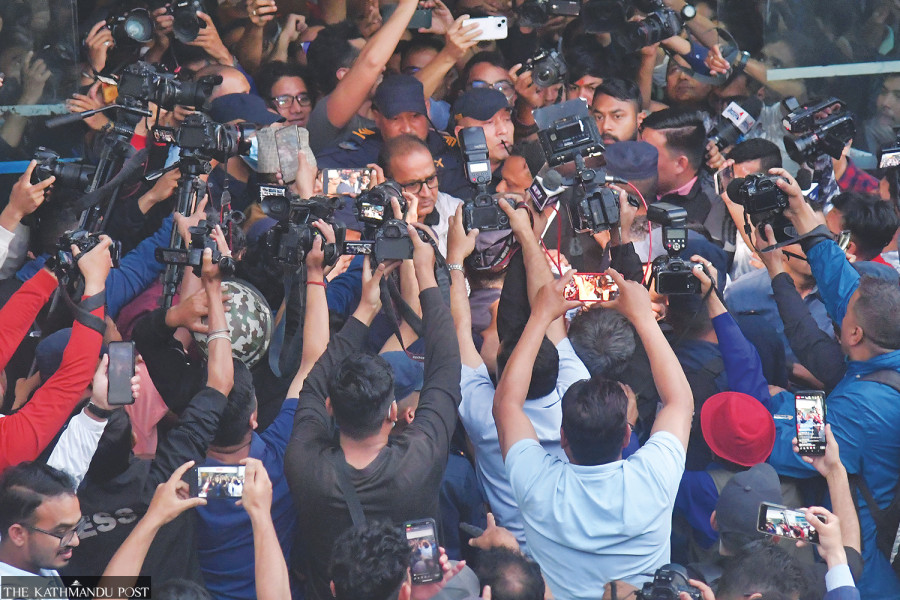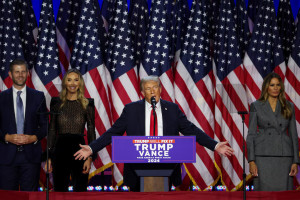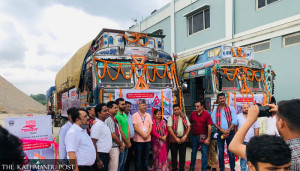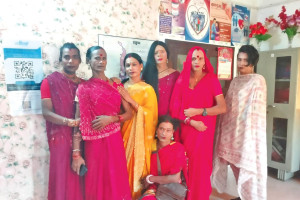Columns
Challenges of Nepali democracy
The actions of Prime Minister Dahal and his partners show that staying in power is their only goal.
Abhi Subedi
These days, I watch Nepali television news more frequently and read broadsheet papers and online news to observe the clash of dreams and reality, particularly in political events. The uncanny political developments in the country have propelled the speed of these events. Little worried by the indications of the erosion of the hard-earned democratic values and practices seen in political coalitions and the assault on media freedom, I briefly review the history of political leaders' dreams and failures in this column. I want to show that we, the people, bear the brunt of history’s tragic and farcical turns.
An important shift has occurred in Nepali history from the tragic to the ludicrous. Karl Marx, in his famous work The Eighteenth Brumaire Of Louis Bonaparte, said, "All the great events and characters of history occur twice, firstly as tragedy, secondly as farce." No communist leaders of Nepal appear to have referred to this book and Marx's prophetic statement except Baburam Bhattarai, the erstwhile Maoist leader and comrade of the current Prime Minister Pushpa Kamal Dahal, who has recently got the vote of confidence for the fourth time in 17 months. This is an interesting episode of political farce. Political parties and the cronies who are always proactive are reducing the democratic system established by people's sacrifice and dedication to a farce. That becomes clear if we watch the drama that happens in Parliament.
There is a serious part to this historical shift. Marx also says, "The social revolution of the nineteenth century cannot create its poetry from the past but only from the future”. This means that to draw strength and meaning from the past, you should create its poetry from the future. This is a little academic point.
Repetition of history
The Nepali democracy and those who have been given the responsibility to protect and use it precisely lack that vision of futurity; they do not perceive the poetry of the future. Their actions in parliament, narrow partisan behaviours, the reckless language they use, inadequate knowledge about the political dynamics of social change and the important time they squander away by acting irresponsibly all show that they lack the vision to create poetry from the future. I have begun to wonder whether the Nepali political parties will fully utilise the democratic political system to ameliorate the condition of the people of this land.
The Nepali media fraternity says the sudden arrest of Kantipur Media Group Chairman Kailash Sirohiya on May 21, 2024, is unfair and "motivated by personal vendetta." The agency in question is the coalition government led by Dahal and the Home Ministry. A certain revelation occurred to me after watching an interview with Bhattarai on Kantipur television on the same night.
Bhattarai recalled one article he published in Kantipur in August 2001 about the royal massacre. I was mourning my mother's death in my village, Sabala of Terathum. I read that article to my elder brother and Nepali Congress district leader, Laya Prasad Subedi, who totally agreed with Bhattarai's analysis. The underground Maoist leader Bhattarai has said in that article the murders were the result of a "political conspiracy". Kailash Sirohiya and his co-publisher, Binod Raj Gyawali, and the editor-in-chief of Kantipur, Yubaraj Ghimire, were arrested for publishing that.
Bhattarai said in the interview that he was stunned by the drama of Sirohiya's arrest, which shows an uncanny repetition of history. This time, he said, “Prachanda is in the position of the king, and the same media person is arrested, as the common opinion says, for publishing news stories about Prachanda's government.” Bhattarai also revealed that in a prime ministerial system like ours, no such decision is taken without the prime minister's consent. It is not the minister but the prime minister who can make such decisions, he explained.
Whatever the position of parties and the leaders at the current moment of history, those who have followed the political history know that Bhattarai has always made decisions according to his understanding, conscience and interpretation of history. Bhattarai had declared that he was leaving the Maoist party because, metaphorically, it was not safe to live in the red-labelled house, which was a category of the badly damaged buildings after the earthquakes of 2015.
I am dismayed by the performances of Pushpa Kamal Dahal. I am getting more and more disillusioned by his actions and those of the other communist leaders of different groups who are all in the coalition now. They include communist stalwarts like Dahal, KP Sharma Oli and Madhav Kumar Nepal. There is no point in talking about the behaviour of the individual ministers, whose sense of history and the missions often don't come to the fore. The coalition’s leader and a major actor Dahal is at the centre of the decisions in this system if we believe the interpretation of the former prime minister Bhattarai.
It is challenging for all political leaders to maintain a history of their choice and to live up to the expectations of the people. Dahal is no exception. I want to recall one event here. Dahal had attended the Hindustan Times Leadership Summit in Delhi in the third week of November 2006. Some people told me about him when I attended a literary conference in Delhi after that event. One professor, impressed with Dahal’s metamorphosis, gave me the news published in the paper. It cites Dahal saying, "I have lived my life in jungle, now I will lead my life in light."
Another report said, ''Nepal's firebrand Maoist leader Prachanda on Saturday said the political battle in the 21st century will be fought over democracy, which at present is in deep crisis." A euphoric Dahal, by his transformation, said while addressing the second session on the second day of the fourth Hindustan Times Leadership Summit in Delhi, "Democracy will rule the world". The report also said, "The former Indian prime minister and admirer of Prachanda I. K. Gujaral says he had read about many epic stories about revolution and Prachanda has shown it by accomplishing an epic battle in Nepal."
History says Dahal and other leaders have clearly failed to deliver. His and his various coalitions’ actions show that staying in power is their only goal. What has begun to worry nonpartisan academics and writers like us is that the power coalitions and groups only work with what Bertrand Russell calls the “lust for power.” The time has come for the free media, legal activists and civil society to be vigilant about protecting democracy.




 11.12°C Kathmandu
11.12°C Kathmandu














